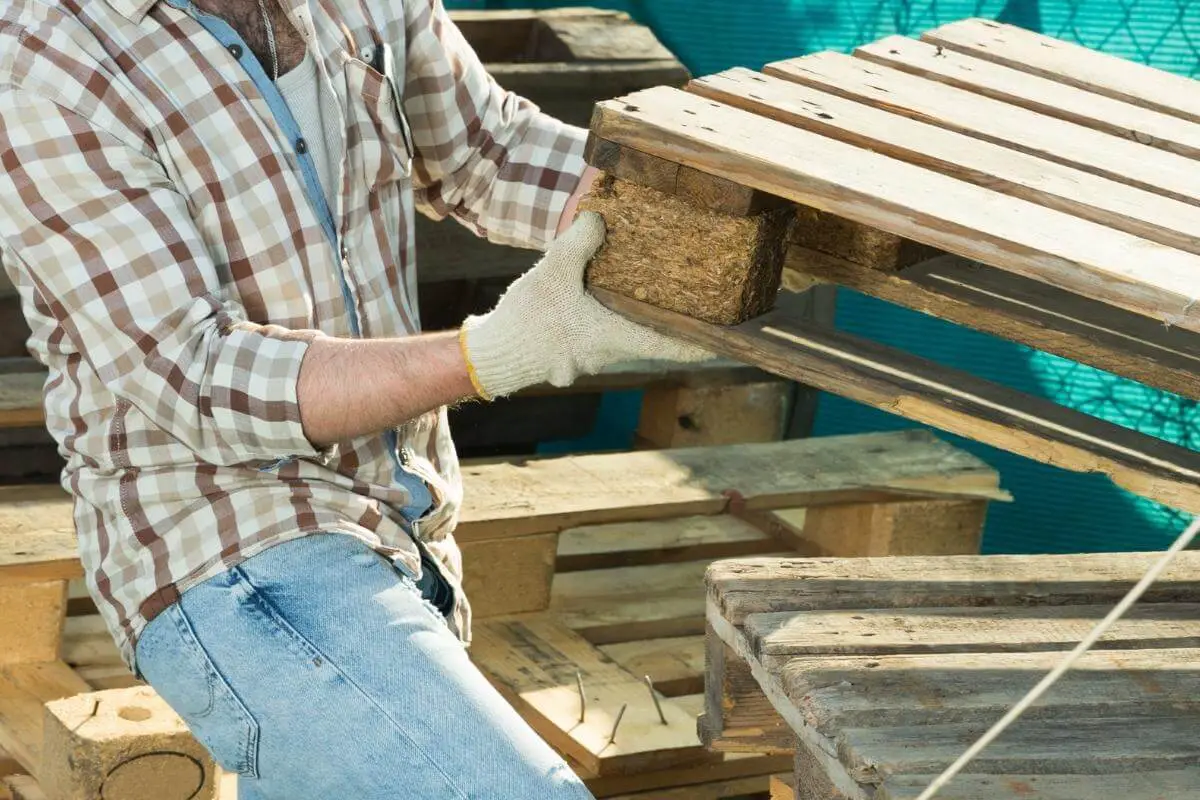If you grow tomatoes in your backyard or grow fields of tomatoes, you’re going to need fertilizer.
If stored incorrectly, fertilizer can be a big problem for both gardeners and farmers.
But do you know how to store fertilizer?
Fertilizer needs to be kept away from moisture, heat, and flammable materials. There are ways to store fertilizer indoors or outdoors, but precautions need to be followed to keep your product and property safe.
Why Do You Need to Store Fertilizer Properly?
Fertilizer doesn’t expire, so why would you need to store it?
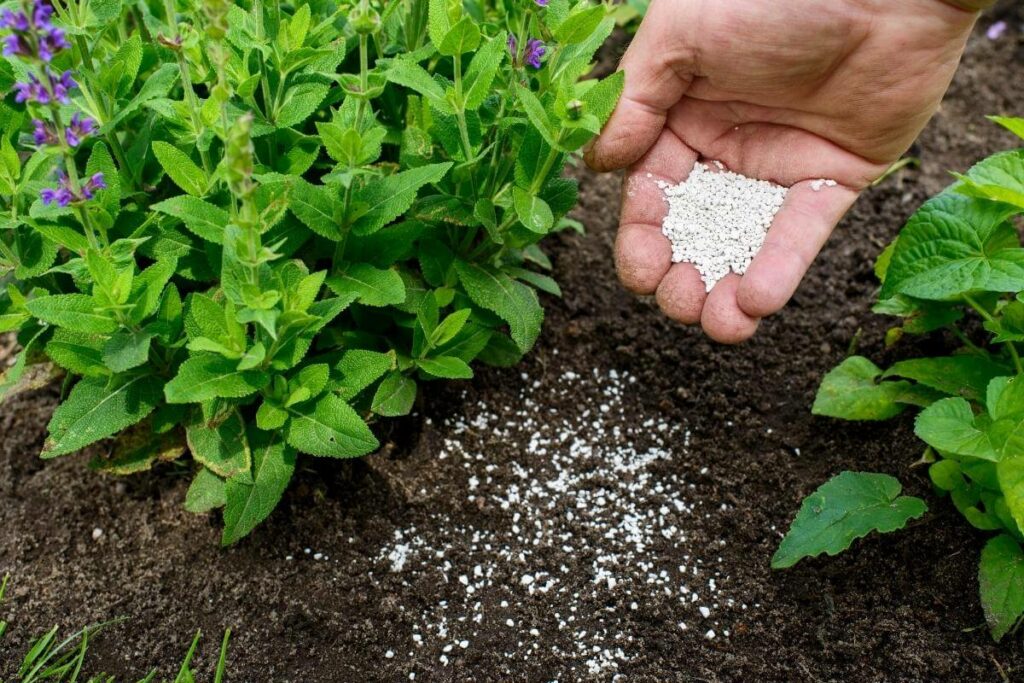
Environmental Damages
Fertilizers contain concentrated amounts of nutrients that change the chemical balance wherever they’re placed.
If fertilizer isn’t stored properly, it can wreak havoc on entire ecosystems in water, and make the ground you’d like to plant unusable.
Fires and Explosions
Before you throw out the bag of fertilizer in your garage, this part only applies to large quantities of fertilizer.
Unless you have thousands of pounds of fertilizer, you have nothing to worry about.
When fertilizer heats, it produces a gas. When the gas can’t escape, the temperature continues to rise.
If pesticides or anything flammable is kept near the fertilizer, the extreme heat and flammable materials cause a fire or an explosion.
The explosion in Beirut was caused by fertilizer. There were hundreds of tonnes of ammonium nitrate being stored at the port.
When it was ignited, an explosion was set off that was so big that neighboring countries could feel it.
Loss of Product
Fertilizer doesn’t expire, but it can go bad.
With any amount of moisture, fertilizer can clump, or become solid. This greatly reduces the fertilizer’s flowability, or the ability to mix into the soil.
Moisture can come from leaks in the containers, condensation, or even humidity.
Key Takeaway: Since moisture can ruin your product in any sort of temperature or climate, it’s important you learn how to store your fertilizer properly.
Best Conditions for Storing Fertilizer
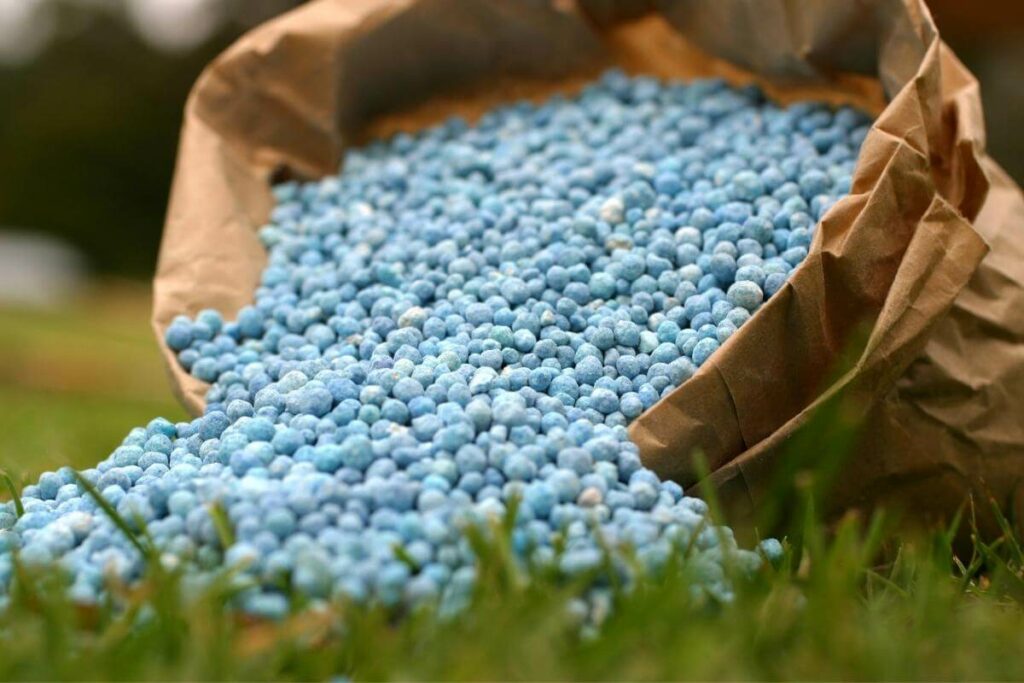
No matter the quantity of fertilizer you need to store, or the type of fertilizer you are storing, there is a set of ideal conditions for storing fertilizer:
- The very best place to store fertilizer is in an enclosed building, designated for fertilizer storage.
- The building should be locked when not in use to prevent thefts. It should be clearly labelled with the type of fertilizer that’s being stored inside. This will help firefighters responding to a fire or a spill.
- Speaking of which, the storage building should be easily accessible. If keeping a storage building towards the front of your property isn’t an option, make sure there is an access road directly to the building.
- The inside of the storage building should be kept at a temperature between 40F and 85F at all times. The space should be kept clean, and as dust-free as possible. You should also have clean-up equipment ready if you encounter a spill.
The best storage method is a pallet racking storage system.
If you’ve ever been to Costco or Sam’s Club, you’ve seen a pallet racking system. It is simply a shelving system that can stack pallets vertically; one on each shelf.
This is the safest method for stacking pallets because they give more support than just stacking pallets on top of each other, nearly eliminating the risk of falling product.
Things You Should Never Do
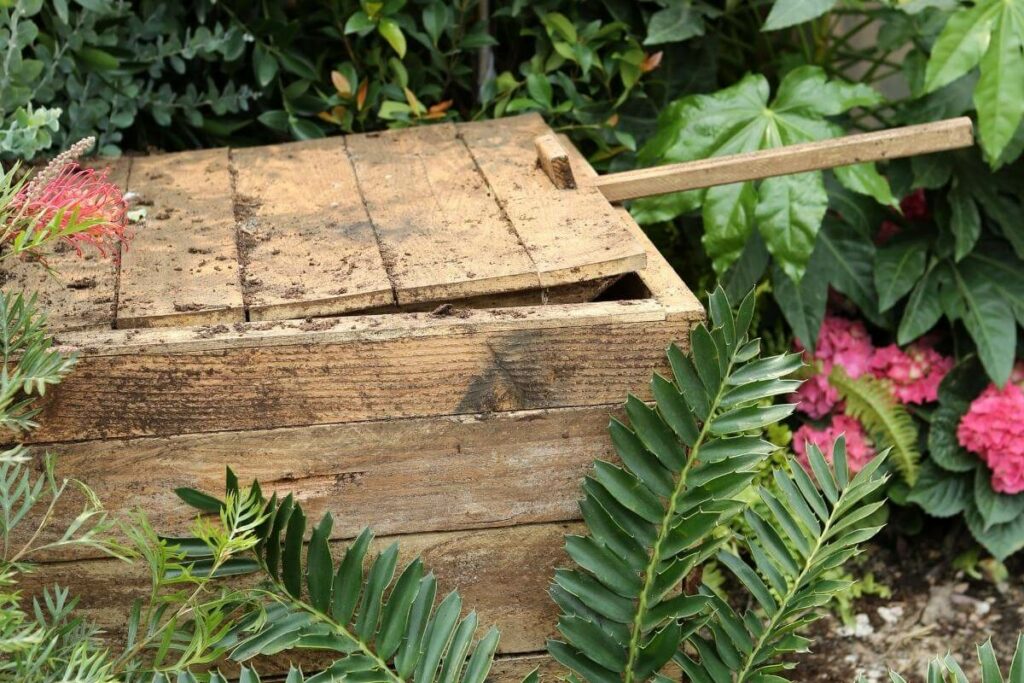
- Never bring any food, drinks, livestock feed, or tobacco into the fertilizer storage area
- Never store pesticides or greenhouse chemicals in the same area.
- Never store your fertilizer in a building that has a well-house or abandoned well.
Storing Fertilizer in the Garage or Shed
If you’re storing a small amount of fertilizer, a garage or shed will do just fine.
An open bag of fertilizer is going to absorb any moisture from the air. It’s also going to stink.
Putting your bag of fertilizer in a metal trashcan is the best storage you could have because:
- It’s waterproof
- It will contain the smell
- It will prevent your fertilizer from catching fire from any stray sparks while you’re working
- It keeps kids and pets out of the fertilizer
- It blocks UV light
If you live somewhere that sees colder winter temperatures, try to keep your fertilizer from freezing.
Remember This: The chemical compounds in the fertilizer can separate when frozen, and the fertilizer won’t work as well once it has thawed.
Outdoor Storage Methods
Outdoor storage of fertilizer is the least ideal method.
Not only is it exposed to the elements, but it’s sitting closer to the ground without a proper barrier.
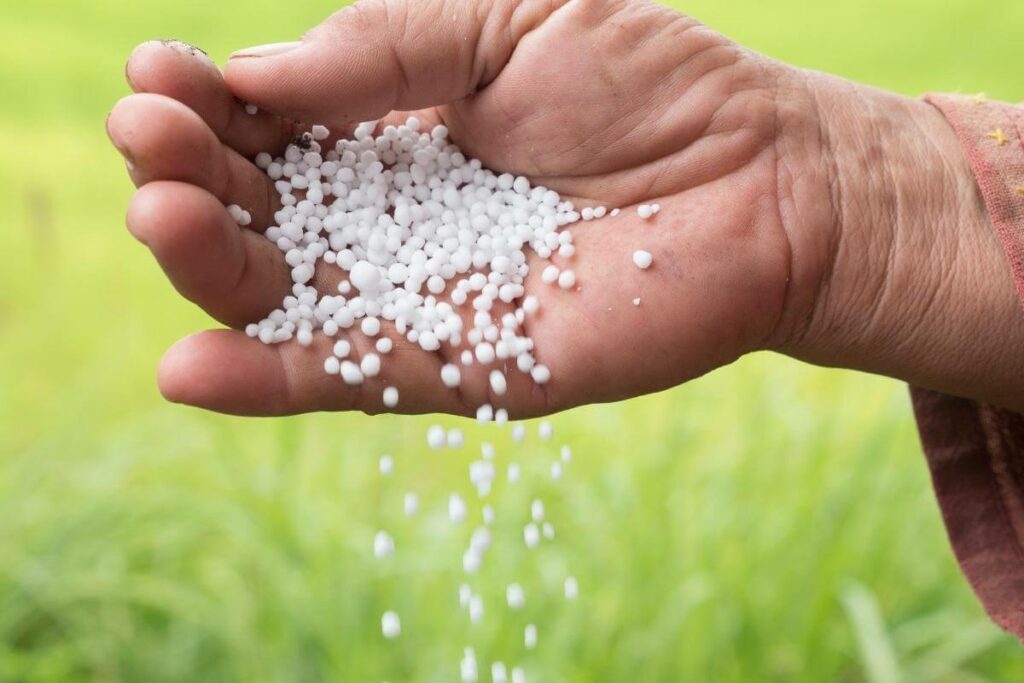
Before setting up a storage area, you’ll need to pick the best place to do it. You should look for well-shaded flat ground that sits higher than the surrounding area.
If you experience heavy rain, you don’t want your fertilizer sitting in a puddle.
A pallet in good condition, without any splinters or loose nails, should be used as a base so the fertilizer isn’t sitting directly on the ground.
Then stack the fertilizer neatly on the pallets. If the pile leans at all, rebuild the stack of fertilizer.
To protect your fertilizer from the elements, you will want to cover your stack with a heavy-duty tarp. Before you lay your tarp, add a layer of empty pallets to protect the fertilizer from birds.
Be Creative: If you have to use more than one tarp to cover the fertilizer, the tarps should overlap at least a foot. This will help keep water out. The tarp should be well tied down around the product.
One Last Tip
If you’re worried about your product caking, you can add a protective coating.
The protective coating minimizes the amount of moisture fertilizer can absorb, and can even improve the fertilizer’s flowability.
There are several types of protective coatings that you can use:
- Coating Oils
- Particulates
- Polymer Systems
- Water-Soluble Liquids
Final Thoughts
If you have a small garden in your backyard that you use fertilizer for, the biggest issue you’ll have from improper storage is clumping and a loss of product.
If you store fertilizer by the tonne, the smallest issue you could have is loss of product. The biggest, and the most dangerous problem you could have is an explosion.
This is why you must store your fertilizer properly. Whether that is indoors, or outdoors depends on the space you have available.
If you store your fertilizer correctly, your property and your tomatoes will thank you!
Also Helpful
- How to Improve Grass on Clay Soil in 4 Easy Ways
- Mushroom Soil vs Compost – 5 Main Differences
- Vermicompost vs Fertilizer: Which is better?
